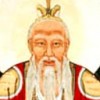[The first principle of British democracy is] our prime duty to each other and to what our conscience tells us to be right. If this leads individuals into conflict with the law, those individuals must be ready to take the consequences non-violently. In our democracy no man should tell another man to break the law, nor should any man break the law to by-pass Parliament. But a person who is punished for breaking an unjust law may if he is sincere and his cause wins public sympathy, create a public demand to have that unjust law changed through Parliament. This is the first and most fundamental principle of British democracy. It has a deep moral significance. Our religious and political liberties rest upon it.
Quotations about:
breaking the law
Note not all quotations have been tagged, so Search may find additional quotes on this topic.
It’s a police mantra that all members of the public are guilty of something, but some members of the public are more guilty than others.
We should never forget that everything Adolf Hitler did in Germany was “legal” and everything the Hungarian freedom fighters did in Hungary was “illegal.”
Martin Luther King, Jr. (1929-1968) American clergyman, civil rights leader, social activist, preacher
Letter from Birmingham Jail (16 Apr 1963)
(Source)
A rioter with a Molotov cocktail in his hands is not fighting for civil rights any more than a Klansman with a sheet on his back and a mask on his face. They are both more or less what the law declares them: lawbreakers, destroyers of constitutional rights and liberties, and ultimately destroyers of a free America.
Lyndon B. Johnson (1908-1973) American politician, educator, US President (1963-69)
Speech (1965-08-20), White House Conference on Equal Employment Opportunity, Washington, DC.
(Source)
Discussing the Watts Riots in Los Angeles (11-16 August).





